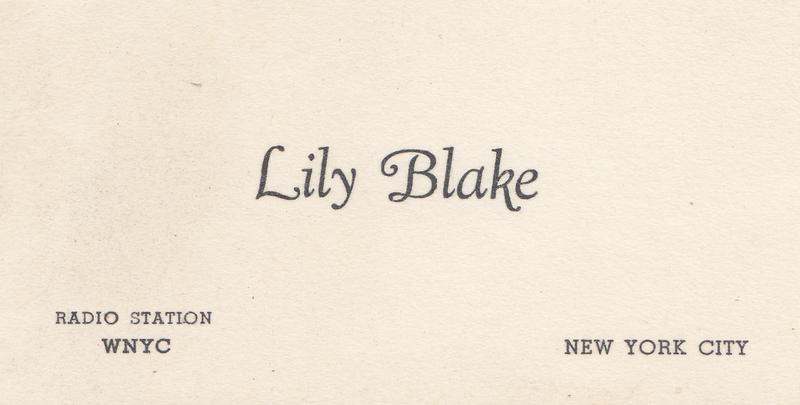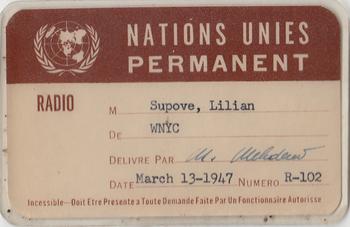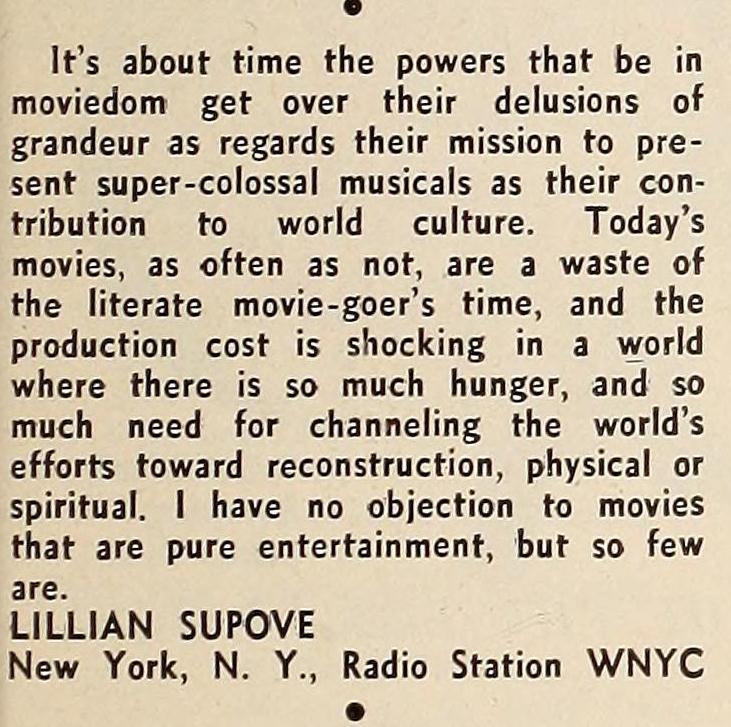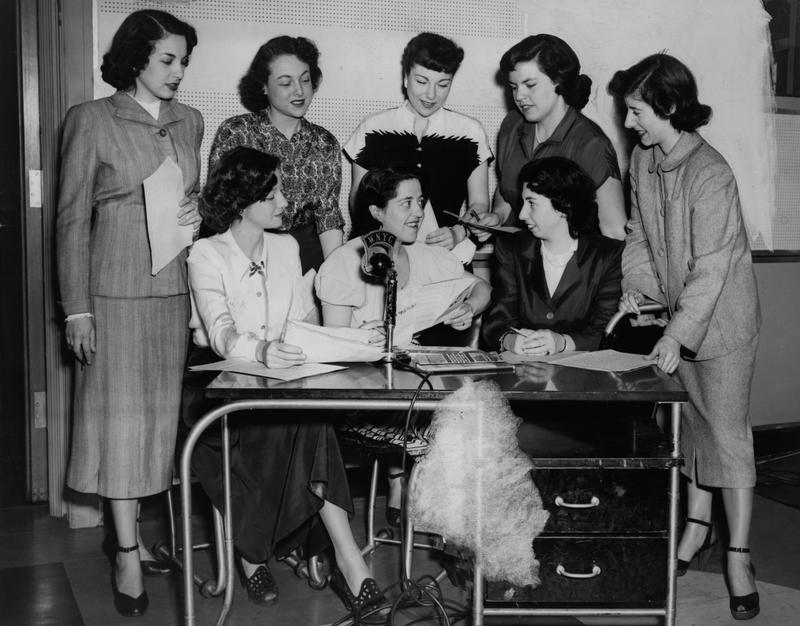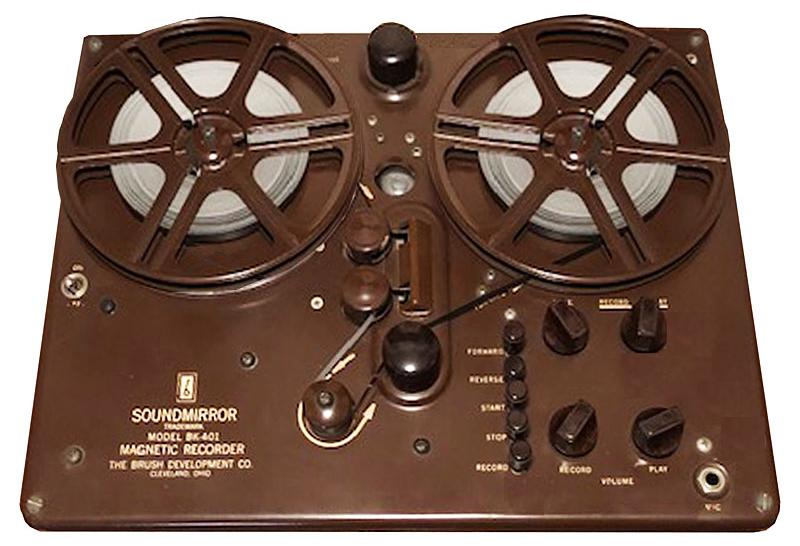 NYPR Archives & Preservation
NYPR Archives & Preservation
Breaking the Glass Ceiling: Lilian Supove Blake

In the mid-1940s, a woman leading the news and special events department of a broadcaster in the nation's biggest radio market was pretty unusual. But that's exactly the position held by Lily Supove Blake at WNYC in the post-war period when hopes for the United Nations ran high, new technology became available and taking some chances with innovative programming was in the offing.
Lilian Thelma Supove was born on March 9, 1910, to Ida Blumer and Jacob Supove. Lily, as she liked to be called, would later put to good use some of the journalistic genes inherited from her father Jake, a newspaper journalist in Europe known for some strong opinions. She graduated cum laude from Smith College in 1929 and was the youngest person in her class. After Smith, she had been a New York City Welfare Department caseworker among other jobs prior to landing at WNYC in 1941.
What she worked on in those early years is not entirely clear, but by 1944 she was writing scripts and producing material for the station's 20th-anniversary programming. Later that year she was the producer for People's Music, East and West, a concert series from Town Hall presenting seldom-heard folk music in collaboration with the East and West Association.[1] In the summer of 1945, she was producing a Saturday evening program called Global Neighbors which, according to Variety, got some script assistance from a seventeen-year-old Edward F. Albee.[2] By late 1945 Lily was WNYC's News and Special Events Director. She coordinated WNYC's 7th annual American Music Festival of 181 programs, including 137 live broadcasts over the eleven days between Lincoln's and Washington's birthdays in February 1946.[3]
Lily was also hosting and producing the World of Women and was the host of the weekly interview program Weekend in New York. Among her interviewees were theater director Robert Lewis, actress Anne Jackson, sportswriter Everett B. Morris, and guitarist Vincente Gomez.
By late 1946 she had taken three Antioch College interns under her wing to help with the writing, production, and launching of a Department of Correction series Toward a Return to Society. The young Kit Davidson, John Michael Kittross, and Rod Serling [4] worked closely with Lily on the shows that aimed:
to acquaint New Yorkers with the work of the Classification Board of the Department of Correction. The series will present radio sessions of the board's meetings, during which actual cases will be discussed...Dramatic portions of the script are written by Lilian Supove.[5]
Standing just barely over five feet tall, Lily also took on special assignments from station director Sy Siegel, such as the National Aircraft Show in Cleveland, Ohio in November of that year. There she used a Brush Soundmirror, the first commercially available tape deck in America, (and quite cumbersome), to record WNYC's first taped programs.[6]
Another trip found her at La Guardia Field on August 29, 1947, for a flight to London on the clipper Constellation to record interviews and finalize arrangements for WNYC's airing of BBC World Theatre productions.[7] During the flight she interviewed a woman from Manila, who described how she, her husband and children were held in internment camps for three years.
Along with BBC officials, her contacts that week in London included no less than George Bernard Shaw. She had written the great playwright with the hope that he would be willing to record a special introduction to The Man of Destiny, one of the BBC produced dramas WNYC planned to air. To her disappointment, she received the following reply:
Quite out of the question. I am too old; and The Man of Destiny needs no introduction. The announcer can read the printed directions with which the play begins in the book if he likes; but this is the utmost that I will sanction.[8]
Lily did, however, have some success scoring an interview with Harold Hobson, drama critic for London's Sunday Times and early champion of playwrights Samuel Beckett and Harold Pinter. They discussed the experimental World Theatre radio series coming to WNYC.
What kind of person was Lily Supove? One rare public reflection on her character and no-nonsense point of view can be found in a September 1947 edition of Film Daily. There, she was one of 372 critics queried on whether American films had improved, failed to improve or regressed in the previous year. She replied:
July 1948 ushered in WNYC's 25th year on the air, and Lily took the lead on silver anniversary programming. The New York World-Telegram wrote with the photo below, "Across the years--while Mrs. Lilian Blake has been director of special events and news...the station has led the airwaves in culture and also in information about health. This year it claims the record for broadcasting more United Nations news than any other station in the world."
Liiy was active on Election Day 1949 doing, among other things, a 'beeper phone' interview with Sid Berry, Special Events Coordinator for the State Department, regarding the Voice of America's election coverage. Here is the interview, introduced by WNYC Director Sy Siegel:
In 1951, Lily and her husband left New York for Tacoma, Washington, where they raised their son Edwin. In the 1970s Lily returned to New York for a few years, working a number of jobs including copy-editing at the Village Voice (1977-1978). According to her son, she also ran a Vista neighborhood house in Harlem from February 1978 to 1979. There she enjoyed introducing kids to the world outside Harlem, showing them how to use the subway system and taking them on field trips to free concerts and various art museums. And, she made it a point to take them to the New York Public Library to get their library cards. Lily Blake died on May 11, 1991.
____________________________________________________
[1] Lohman, Sidney, "Gossip of Radio Row," The New York Times, pg. X11. Note: The East and West Association was formed during World War II with the goal of aiding the Allied war effort in Asia by helping Americans understand the culture and concerns of the people of China and India.
[2] Variety, August 8, 1945, pg. 32
[3] "Musical Mastodon" PM, February 22, 1946, pg. 16.
[4] According to author Gordon F. Sander, Serling's pay at WNYC didn't quite cover all of his expenses and so the former Pacific theater paratrooper took to moonlighting as a parachute tester. "Lilian Blake, his supervisor at WNYC, found out about her subaltern's somewhat bizarre part-time job when he staggered into the newsroom one winter's day with a major gash across his cheek. Serling sheepishly explained that the parachute he was testing proved impossible to control, and the wind had blown him into a barbed wire fence. 'You wouldn't know it to look at him though,' said Blake. 'He was very modestly behaved, not at all the swashbuckling type.' " Source: Sander, Gordon F., Serling: The Rise and Twilight of Television's Last Angry Man, Plume, 1994, pg. 57-58.
See also: Radio from The Twilight Zone for Lily Supove's comments on Serling from Serling's FBI file.
[5] Lohman, Sidney, "Concerning Radio Row," The New York Times, November 10, 1946, pg. X9.
[6] "WNYC Airs Magnetic Paper Tape Broadcast," Billboard, November 30, 1946, pg. 5. In the January/February 1947 Masterwork Bulletin, Seymour N. Siegel wrote: "1946 introduced to WNYC listeners the handy little gadget known as the Brush sound-mirror. Similar in many ways to the wire recorder, this 'sound-mirror' records events on a spool of chemically-treated paper tape, about three-eighths of an inch wide, which can then be played back on the same tidy machine which took the recording. We have used one of these recorders for two special events, which were the National Aircraft Show at Cleveland, and the meeting of the Radio Executives' Club addressed by H.V. Kaltenborn, on 'If I Were Running Radio.' The tape recording of H. V. Kaltenborn's talk was rebroadcast over WNYC shortly after its completion. Fortunately, Mr. Kaltenborn's delivery and voice are so well-known and so distinctive that listeners could easily have detected any distortion in the tape-recording. But with exception, those of you who wrote in response to our request for comment on the reception of this tape-recording, mentioned the exceptional fine reception you received."
[7] "From the Production Centers," Variety, September 3, 1947, pg. 36.
[8] Gould, Jack, "The News of Radio," The New York Times, September 8, 1947, pg. 42.
[9] "WNYC to Hold Own Jubilee," The New York World Telegram, June 9, 1948, pg. 3.
